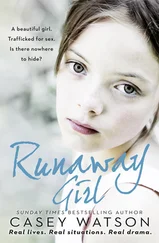There’s a strong superstition in parts of Nova Scotia that if you want to keep unwanted ghosts out, and wanted ghosts in, you should place a pair of scissors crosswise so that it keeps an attic window shut. Seven or eight hours after the rabbi’s house-blessing, I went up to my third-floor study and fixed a scissors crosswise in the small window, it being the topmost window of the house.
Some strange things happened in the aftermath. For a month or so after moving back to Washington, each time I arrived home from my university teaching after dark, as I walked up the steps I would experience a formal hallucination. Through the dining room window I would see a shadow-woman and shadow-boy in the midst of what resembled a Balinese puppet play, at once beautiful and tremendously disturbing. What is more, I would always arrive at the very moment when the woman raised her closed fist high above her head and in slow motion arced it down upon the boy as he reached out for her. Then the boy would fall from view. To my great surprise, after seeing this a few times I more or less got used to it. And then in March or April of 2004, roughly eight months after the murder-suicide, these shadow figures disappeared, permanently as it turned out, from behind the window, as if the house itself had banished them.
In private, Jane and I spoke about moving — who would not? — and maybe renting a different house, trying to give full voice to the financial and psychological reasons. Yet try as we might, we mostly talked around it. It was very difficult and painful not only to speak about what had happened, but to admit having been blown so far off our familiar courses in life. What is more, our responses to this murder-suicide had revealed some aspects of our individual natures that were surprisingly different — not opposed to each other, exactly, but quite different. In every vital sense, we were on the same page. But I suspect, too, we were loath to credit that sordid and pernicious act as necessitating anything but a kind of perfect togetherness in order for us to endure. In the end this too would pass; still, since July 16, 2003, each day had required that we fend off estrangements from familiar life, even if they couldn’t all be named.
While we convinced each other that doing the radio broadcast with Susan Stamberg would, among other things, exhibit to our friends that we were doing okay, we in fact both had deeply rooted reservations, but mutual encouragement was more important. No regrets there at all, none. However, when I listened to the complete interview, I heard the contrast between Jane’s pointillistic honesty and my own impressionistic responses. I recognized Jane’s use of an intimate house/body metaphor and my own reliance on ancient parable and literary quotation to articulate what I myself could not. During that interview and in life in general, I was so afraid of self-inflicted despondency that I would outsource all useful insight to others, rather than claim ownership of any original thinking, of how to feel things deeply and say things clearly enough for myself. I started to feel beaten down; all of my reasoning and emotions were generic. However, I did know one thing: out of some misguided attempt to remain stoical, I was making myself physically sick, habituated as I had become to keeping so much sadness inside, along with the seething anger toward Reetika Vazirani. Better that I should have stood on the coast of Nova Scotia and screamed.
On the far more healthy end of the spectrum, Jane, a woman whose house was so violated, was able to dignify her own feelings and pay forthright attention to her concern that all this pain might have lasting effects on our trust and love for each other, and even destroy parts of our very souls. And come to think of it, that first time I listened alone to the radio interview, I tried to gain some knowledge from it, to see if we ourselves were okay. And I thought, well, yes and no.
As for the “wisdom of the ages” stuff, my therapist said, “For all the lovely altruism of that proverb of David Mamet’s you keep referring to—‘If you are walking down the road and see a house on fire…’—all well and good, Mr. Norman. But in fact it was your house that was violated. You aren’t victims, nor are you suggesting anything of the sort, but it was your house. If you want to rely on a platitude, why not try ‘No good deed goes unpunished,’ and see what connection to the truth that provides.”
An unforgivable thing had happened. And though we were still in an emotional limbo, life moved on and life moved on. We had book parties, Emma’s sleepovers, dinner parties. We had a number of literary-work sojourns apart, Jane and I, and saving-grace periods of time in Vermont. A slow, slow return to normal life.
The thing was, since our house — our actual address — had been made so public, a lot of people we had never met knew where to send mail. In the old life, when any letter arrived, I would open it right away, but after the murder-suicide, I came to dread the mail. If a letter had an unfamiliar postmark or return address, I’d hesitate, sometimes for days, even weeks. One night, looking in a desultory way at a bunch of letters in a basket on my desk, I simply tossed them all out unopened.
Our house was inundated with letters, telephone calls, and e-mails, and some people posted online treatises about what had, or what they thought had, happened there. I could only imagine the types of dialogues about the murder-suicide that went on throughout the literary community. This was human nature, I suppose, the human condition. Speculation, hearsay, eulogies, recriminations. I tried to look at all this as a kind of choral arrangement, a tremendous singing out of innumerable and very conflicted condolences. After all, the phenomenon of poet-suicide, historically speaking, has always been a magnet for all manner of inquiry and debate and hagiography. This public outpouring of emotion was perhaps an attempt to compose the fullest, if inevitably fragmented, presentation of Reetika Vazirani’s life and put it to rest. Still, I feel obligated to express my dumbfoundedness that Jehan was so seldom mentioned. The novelist Percival Everett said, straight from the heart, “Why couldn’t she have at least let her son live? I am still angry because there were so many ways not to hurt the child. I am sick with the knowledge that his sweet life is over.”
Many of these communiqués contained what often felt like a violating sort of presumptuousness, as if there were some shared conviction that my family somehow needed or wanted to collate other people’s lettered, and unlettered, opinions into meaningful comprehension of the childhood, upbringing, failed relationships, ambitions, and secrets of this near-total stranger Reetika Vazirani, and as if we had a kinship fascination with the connection — always dubious — between art and madness. (One Washington-area writer, who had claimed to be an intimate of Reetika Vazarani, but in fact had not even known her address, said to me in a bookstore, “A lot of my friends consider me a kind of lay therapist, in case you’re interested.”)
However, I would also say, even given the sporadic and modest attention I paid to such things, that on the whole these communiqués shared a popular sentiment that Reetika Vazirani’s cultural bifurcation (her primary family left Pujab in 1968, when she was six) had somehow mutated into a full-blown bipolar illness. Concerning the so-called (in her own journal) “immigrant condition”—a transitory heart — Reetika Vazirani’s sister, Deepika, thought that in her writings her sister “magnified her experience. Maybe she needed a compelling, even fashionable subject. Whatever the reason, Otherness became an enduring theme.” And a lot of people theorized that Reetika Vazirani was somehow fatally trapped between viciously contending elements: there was sheer ambition (“Create a buzz around yourself — that’s what I did”), there were money worries intensifying the difficulties of single motherhood, and there was antecedent madness (her father had committed suicide). Add to all that her despair about her relationship with Jehan’s father, a distinguished poet who lived apart from her and her son.
Читать дальше












